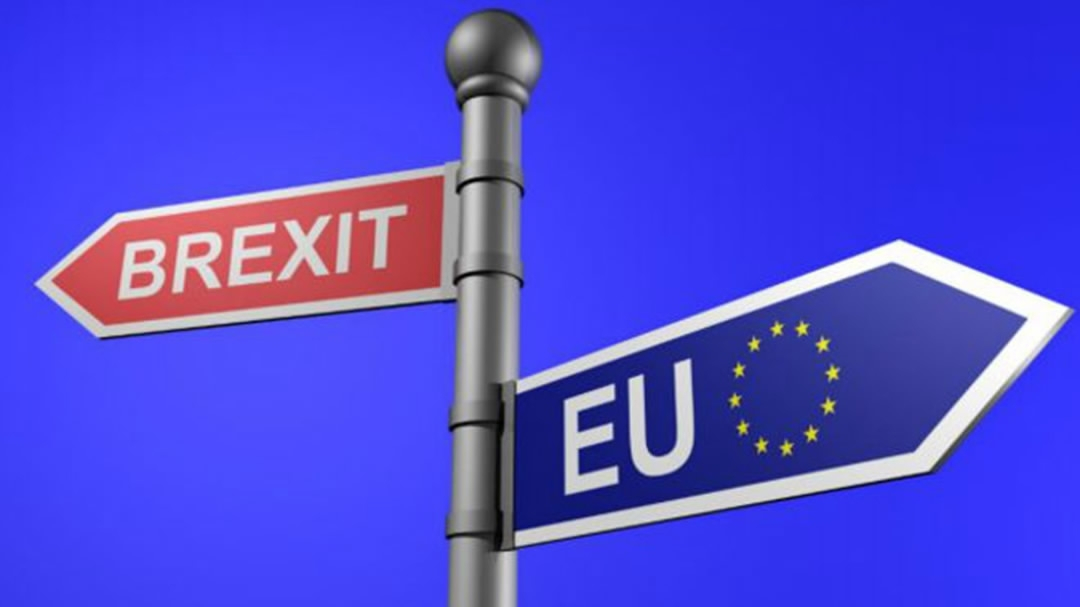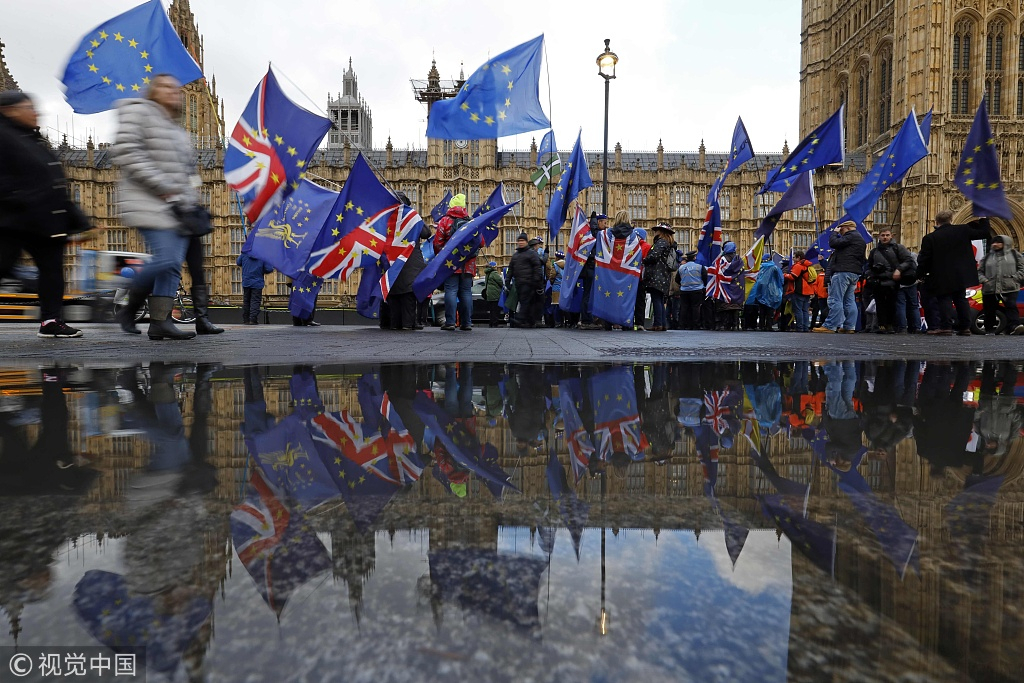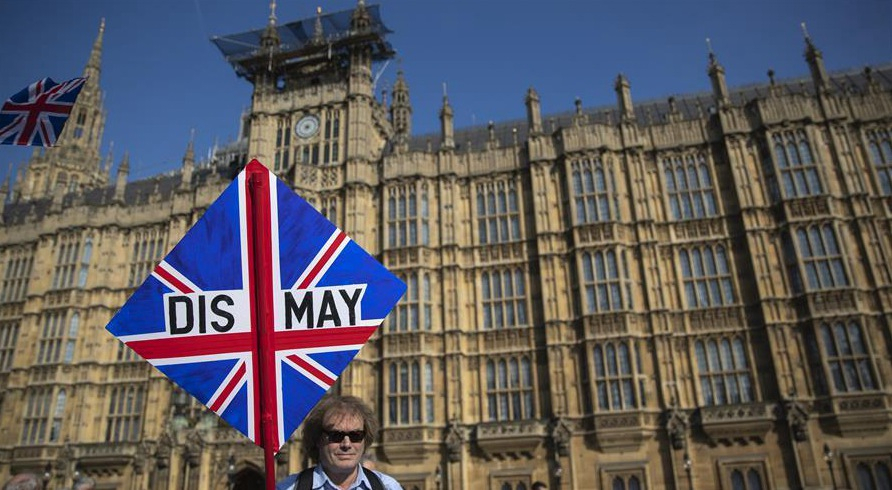

Editor's note: Jonathan Arnott is a former member of the European Parliament. The article reflects the author's opinions and not necessarily the views of CGTN.
Here in the UK, we are living in difficult and unusual times. There is an old poem called Maud Muller which contains the famous phrase “For of all sad words of tongue or pen, the saddest are these: It might have been!” When I look back at negotiations, I see an incredible missed opportunity. Britain could be outside the European Union (EU) already, on good terms with the EU as an independent self-governing nation.
If you want to understand the current situation in the UK, it’s necessary to understand the mistakes that were made by Theresa May’s government in Brexit negotiations. When both sides have something of broadly equal value which the other side wants, negotiations should be fruitful for both sides.
The EU can continue to offer the UK tariff-free access to a market of 500 million people. It could offer continuity and stability, visa-free travel, and the opportunity to work together as good friends and neighbors on a huge range of issues.
The UK is a global leader in security and counter-terrorism. It is a member of the Five Eyes Network. It is a leading player in scientific research and education: according to the World University Rankings 2019, the UK has six of the world’s top 30 universities; the rest of the EU combined has none.

Anti-Brexit supporters demonstrate outside the Houses of Parliament in London, March 12, 2019. /VCG Photo
The EU would wish to retain access to the UK’s lucrative fishing waters. When the UK leaves the EU, there are some legal obligations – to cover payments for projects already completed, and pensions for officials. The UK can offer continuity to the UK too, to make sure that projects already planned or underway are still financed.
The UK’s hand in negotiations was a strong one. In exchange for a rewarding trade arrangement, we could have offered co-operation in all those areas – and commit to a financial settlement to ensure that the EU was not left out of pocket.
Theresa May’s fundamental error was to offer all of these things to the EU first, without getting anything in return. She agreed to pay an inflated financial settlement – or "divorce bill" – with no guarantees in return, and was left with no bargaining chips. Therefore, the EU was able to extract further concessions from Theresa May – agreements that the UK would continue to follow EU rules in a huge variety of areas.
Worse still, when I was a member of the European Parliament I watched in horror as British Labour, Liberal Democrat and Green politicians consistently voted in favor of the EU’s negotiating position. Under such circumstances, even a competent government would have struggled.

A pro-Brexit protester outside the Houses of Parliament in London, March 29, 2019. /Xinhua Photo
The deal was unsurprisingly a lop-sided one. It was so bad that it united both Brexiteers and Remainers in agreeing that it was a bad deal for the UK; some people even describe it as "the worst deal in history."
With the clock ticking down, we are left with just three alternatives: to cancel Brexit altogether, Theresa May’s deal, or to leave the EU with no deal. Cancelling Brexit would be an appalling defiance of democracy: more people voted for Brexit than have voted for anything else in British history. The referendum result was confirmed by subsequent General and European elections, in which parties pledging to deliver Brexit won again. Theresa May’s deal is biased in favor of the EU and unacceptable to the UK. Therefore, reluctantly, a no-deal Brexit is the only realistic option.
It will not be easy, but sovereignty and democracy matter. I always wanted a good deal and cooperation with the EU. I still believe that such can be achieved, but most likely it will now only be achieved by having a no-deal Brexit first – and then negotiating a new relationship from outside.
The road ahead will be a bumpy one. Theresa May’s government is to blame for an inept negotiating strategy which has led us to this place, and opposition politicians for failing to grasp any of the opportunities which Brexit offers. It did not need to be this way: there was a much easier path for Brexit to take.
I am still optimistic for the long-term future after Brexit, but I’ll always be left thinking about the saddest words – about what might have been, if only our politicians had the vision to achieve it.
(If you want to contribute and have specific expertise, please contact us at opinions@cgtn.com.)

Copyright © 2018 CGTN. Beijing ICP prepared NO.16065310-3
Copyright © 2018 CGTN. Beijing ICP prepared NO.16065310-3